Is South Sudan’s Fragile Peace Over?
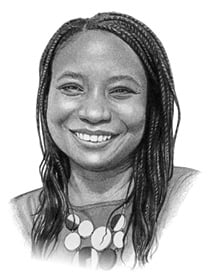
Is South Sudan’s Fragile Peace Over?
A high-profile arrest in the world’s youngest country spark fears of a return to all-out war.
South Sudanese soldiers patrol a street in Juba, South Sudan, on Feb. 13. AP Photo/Brian Inganga
Welcome to Foreign Policy’s Africa Brief.
The highlights this week: South Sudan’s fragile peace is put in jeopardy, Zambia’s economy rebounds after the pandemic, and the continent’s first artificial intelligence factory is set to come to South Africa.
Welcome to Foreign Policy’s Africa Brief.
The highlights this week: South Sudan’s fragile peace is put in jeopardy, Zambia’s economy rebounds after the pandemic, and the continent’s first artificial intelligence factory is set to come to South Africa.
If you would like to receive Africa Brief in your inbox every Wednesday, please sign up here.
Vice President’s Arrest Sparks Fears of Civil War in South Sudan
South Sudan’s first vice president and main opposition leader, Riek Machar, was detained last week and charged with attempting to incite rebellion. The arrest has fractured the 2018 power-sharing agreement between Machar and President Salva Kiir, which ended a five-year civil war that killed an estimated 400,000 people.
Machar’s party, the Sudan People’s Liberation Movement-In Opposition (SPLM-IO), issued a statement saying that his arrest “effectively” voided the agreement and that the “prospect for peace and stability in South Sudan has now been put into serious jeopardy.” United Nations spokesperson Stéphane Dujarric has also warned that the move takes the country “one step closer” to the return of civil war.
Kenya—which chairs the East African Community, a bloc of eight states including South Sudan—dispatched former Kenyan Prime Minister Raila Odinga to defuse the situation. Odinga said on X that he had met with Kiir on Friday and was “encouraged” about the possibility of resolving the conflict. However, South Sudanese officials denied Odinga a meeting with Machar.
South Sudan’s military, which is overseen by Kiir, has clashed with forces loyal to Machar outside the capital of Juba and in Upper Nile state since March 4, when the so-called White Army, an armed youth group from the same ethnic Nuer community as Machar, attacked an army garrison. Since then, Kiir has attempted to bolster his position by arresting ministers loyal to Machar and appointing his own advisor, Benjamin Bol Mel, as second vice president. (The United States sanctioned Bol Mel in 2017 for graft.)
On March 16, the army launched an airstrike on the town of Nasir in Upper Nile in an effort to crush the White Army, which fought alongside Machar’s forces in the 2013-18 civil war. Officials in Nasir said the bombing killed at least 21 civilians, and photos shared on social media show women and children with horrific burns; a Sudans Post investigation found that ethyl acetate, a highly flammable chemical, was likely used in the strike. More than 60,000 people have fled Upper Nile in the past month.
Since mid-March, Uganda, an ally of Kiir’s government, has entered the dispute, deploying special forces to help “secure” Juba at South Sudan’s request.
Analysts fear that Sudan’s and South Sudan’s conflicts are converging. South Sudan gained independence from Sudan in July 2011, ending more than two decades of civil war. Since April 2023, Sudan has been mired in another civil war amid a power struggle between rival generals. In February, the paramilitary Rapid Support Forces (RSF) formed a rival Sudanese government with the Sudan People’s Liberation Movement-North, an offshoot of South Sudan’s SPLM, which spearheaded the country’s independence push and now runs the government under Kiir.
Sudan’s army believes that Kiir is backing the new RSF alliance. Sudanese Minerals Minister Mohamed Bashir Abunommo accused South Sudan last month of allowing the United Arab Emirates, which supports the RSF, to establish an “aggression base” under the guise of a field hospital in Aweil East county near the Sudanese border. In turn, officials loyal to Kiir fear that the Sudanese army has reignited its historical ties to Nuer militias allegedly linked to Machar in South Sudan’s Upper Nile and supplied them with weapons, enabling the recent spike in attacks.
The Week Ahead
Wednesday, April 2: South Africa’s Parliament votes on a revised budget.
Monday, April 7: French President Emmanuel Macron begins a two-day visit to Egypt to discuss the Gaza reconstruction plan.
Tuesday, April 8, to Thursday, April 10: The 2025 Energy Access Investment Forum is held in Kampala, Uganda.
What We’re Watching
Could Sudan split? Sudan’s army, led by Gen. Abdel Fattah al-Burhan, has recaptured most of the capital of Khartoum from Mohamed Hamdan “Hemeti” Dagalo’s paramilitary RSF, marking a turning point in the nearly two-year war between the rival generals that has killed as many as 150,000 people. Yet hopes of peace talks remain distant as the Sudanese military presses further into the Darfur region, which is almost entirely controlled by the RSF, and regional mediators warn of a de facto partition of Sudan.
“The joy of victory will not be complete until the last rebel is eliminated in the last corner of Sudan,” Burhan said on Saturday.
Zambia rebounds. In November 2020, Zambia became Africa’s first country to default on its sovereign debt during the COVID-19 pandemic, but the country has recently experienced remarkable growth and could become the continent’s sixth-fastest-growing economy this year. According to preliminary data, Zambia’s GDP expanded 4 percent last year, more than three times faster than the International Monetary Fund expected.
The growth in Zambia, Africa’s second-biggest copper producer, has been fueled by a surge in agriculture and mining output. For the first time in nearly two years, inflation slowed last month, declining from 16.8 to 16.5 percent.
Yet growth from mining has come at a cost. The Zambian government continues to face demands from the public to hold a Chinese-run mine responsible for a devastating acid spill in the country’s largest river. China is Zambia’s biggest single creditor and a key partner in its mining growth; in June 2023, Zambia reached a deal with China and several other nations, including France, the United Kingdom, and India, to restructure about $6.3 billion in loans.
Somalia’s port offer. In a letter to U.S. President Donald Trump, Somali President Hassan Sheikh Mohamud offered Washington “exclusive” control of a strategic port and air base in the city of Berbera. Officials in the breakaway region of Somaliland, where Berbera is located, have responded with outrage. This is “indicative of a corrupted regime on its last breath, engaged in a suicide mission,” Somaliland Foreign Minister Abdirahman Dahir Adan posted on X, adding that “there is nothing they can do to stop the upcoming recognition of Somaliland.”
Somalia also offered the United States exclusive access to a port in Bosaso within the semi-autonomous Puntland region. Both ports are run by DP World, a multinational firm closely linked with the Emirati royal family.
Some analysts view the offer as a way for Somalia to dissuade the Trump administration from recognizing Somaliland—a possibility that some U.S. Republicans have pushed for. Somali officials may also be looking to convince Trump not to reduce military support to the country as it fights al-Shabab militants, as he did during his first term.
Tunisia leaves rights court. Tunisia recently withdrew from the African Union’s human rights court without citing a reason, as President Kais Saied deepens his one-man rule. Saied, who came to power in 2019, has ruled by decree since 2021. He won a landslide second term in October 2024 after jailing or disqualifying most of his political rivals.
Some regional analysts have long criticized Saied’s populist rhetoric for mirroring Trump’s. “Like the former US president, he has been vocal in his insults and attacks on political parties, media outlets, and state institutions, which inhibited his desire, as president, to do what he wants,” Al Jazeera political analyst Marwan Bishara wrote in 2021.
Nigeria investigates USAID. Nigerian lawmakers have begun investigating nonprofit organizations funded by the U.S. Agency for International Development (USAID) in response to comments made in February by U.S. Rep. Scott Perry. The Republican lawmaker alleged without evidence that the agency financed extremist groups, including Boko Haram. Abuja has asked that nonprofits located in the country’s north, which is battling Islamist insurgencies, submit financial statements for review from the period between 2015 and 2024.
Since February, the Trump administration has ended more than 80 percent of USAID programs around the world. In Nigeria, the majority of USAID support went toward health services, including funding treatment for HIV and malaria.
This Week in Tech
Africa’s first AI center. Cassava Technologies, founded by Zimbabwean telecoms billionaire Strive Masiyiwa, has announced a partnership with U.S. chipmaker Nvidia to build Africa’s first artificial intelligence factory. The facility is set to launch in South Africa in June, followed by an expansion into Egypt, Kenya, Morocco, and Nigeria.
If successful, the project may create jobs in a sector where African graduates often need to emigrate to find employment.
Last month, Microsoft pledged a nearly $300 million investment to train South Africans in AI skills, machine learning, and cybersecurity as part of its data center expansion in the country amid growing hostility from Washington toward the South African government. On March 6, Trump cut off aid to South Africa over the country’s new land law aimed at reversing lingering inequality from apartheid.
Microsoft has “integrated the objectives of broad-based black economic empowerment into its business operations with respect to ownership, management control and skills development,” said South African President Cyril Ramaphosa, adding that the company has “demonstrated its commitment to addressing the historical imbalances of South Africa’s past.”
Meanwhile, Trump advisor Elon Musk has faced difficulty getting regulatory approval to expand his Starlink high-speed internet services into South Africa, due to his refusal to comply with the country’s diversity and inclusion laws.
FP’s Most Read This Week
- The U.S. Judicial Crisis Is Uniquely Dangerous by Andrew O’Donohue
- America Is Listing in a Gathering Storm by James Kitfield
- Is America a Kleptocracy? by Jodi Vittori
What We’re Reading
Ethiopia’s genocide case. A power struggle within the Tigray People’s Liberation Front has sparked concerns among security analysts that Ethiopia will relapse into deadly civil war.
In Foreign Policy, Azeem Ibrahim and Annika Weis argue that for peace to hold in the Tigray region—the site of a brutal conflict from November 2020 to November 2022—members of Ethiopia’s federal forces, paramilitary groups, and allied militias who allegedly committed atrocities must face an international criminal investigation.
Land grabs in Madagascar. Italian multinational Tozzi Green faces accusations of land grabbing in Madagascar, Sara Manisera, Daniela Sala, and Andrianaivomanana Lova reported last week in New Lines Magazine. The company sells carbon credits to entities looking to offset their emissions by planting trees—“an activity seen as so universally virtuous that it often obscures the controversial and even detrimental impact these industrial-scale initiatives can have,” the authors write.
Residents in southern Madagascar’s Ihorombe region, where Tozzi Green has begun planting trees, say the project has displaced them without proper compensation. Land rights are complicated in Madagascar, where French colonial rule left many Indigenous Malagasy people without official land titles. The company, which leased the land from the government, denies wrongdoing.
Nosmot Gbadamosi is a multimedia journalist and the writer of Foreign Policy’s weekly Africa Brief. She has reported on human rights, the environment, and sustainable development from across the African continent. X: @nosmotg
More from Foreign Policy
-

An illustration shows a golden Cybertruck blasting through a U.S. seal of an eagle holding arrows and laurel. Is America a Kleptocracy?
Here’s how life could change for the rich, poor, and everyone in between.
-

The flag of the United States in New York City on Sept. 18, 2019. America Is Listing in a Gathering Storm
Alarms are clanging at the U.S. geographic military commands around the globe.
-

U.S. President Donald Trump shakes hands with Supreme Court Chief Justice John Roberts during Trump’s inauguration in Washington, D.C. The U.S. Judicial Crisis Is Uniquely Dangerous
But other democracies provide a roadmap for courts to prevail over attacks from the executive branch.
-

An illustration shows a golden Newtons cradle with Elon Musk depicted on the one at left and sending a globe-motif ball swinging at right. Elon Musk’s First Principles
The world’s richest man wants to apply the rules of physics to politics. What could go wrong?

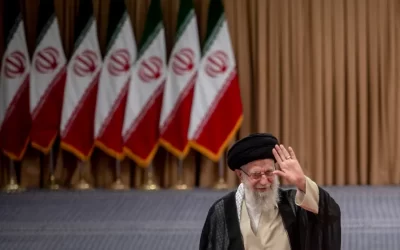
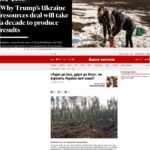
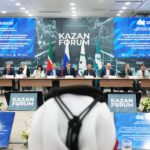
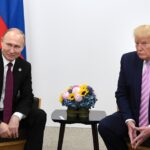

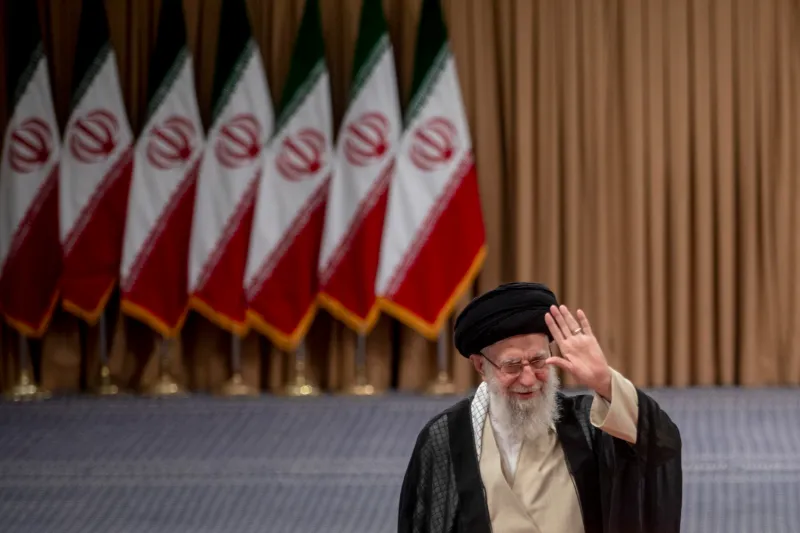
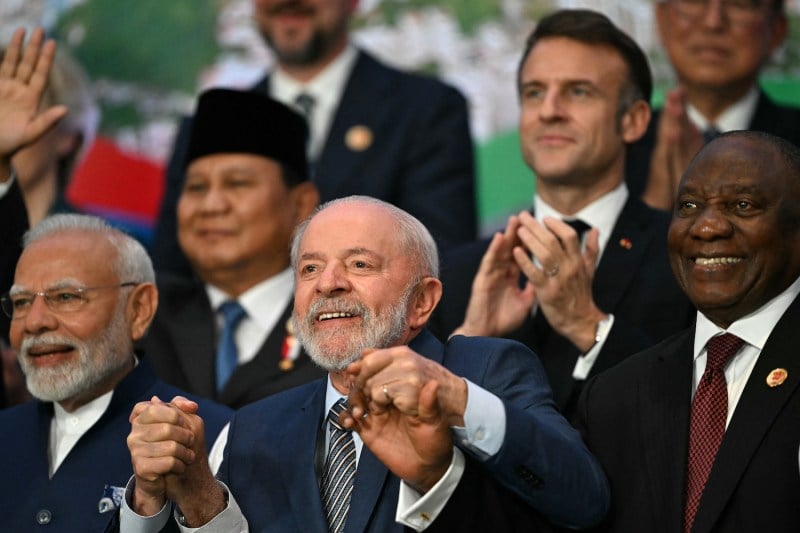


Join the Conversation
Commenting on this and other recent articles is just one benefit of a Foreign Policy subscription.
Already a subscriber?
.
Subscribe
Subscribe
View Comments
Join the Conversation
Join the conversation on this and other recent Foreign Policy articles when you subscribe now.
Subscribe
Subscribe
Not your account?
View Comments
Join the Conversation
Please follow our comment guidelines, stay on topic, and be civil, courteous, and respectful of others’ beliefs.
Change your username |
Log out
Change your username:
CANCEL
Confirm your username to get started.
The default username below has been generated using the first name and last initial on your FP subscriber account. Usernames may be updated at any time and must not contain inappropriate or offensive language.